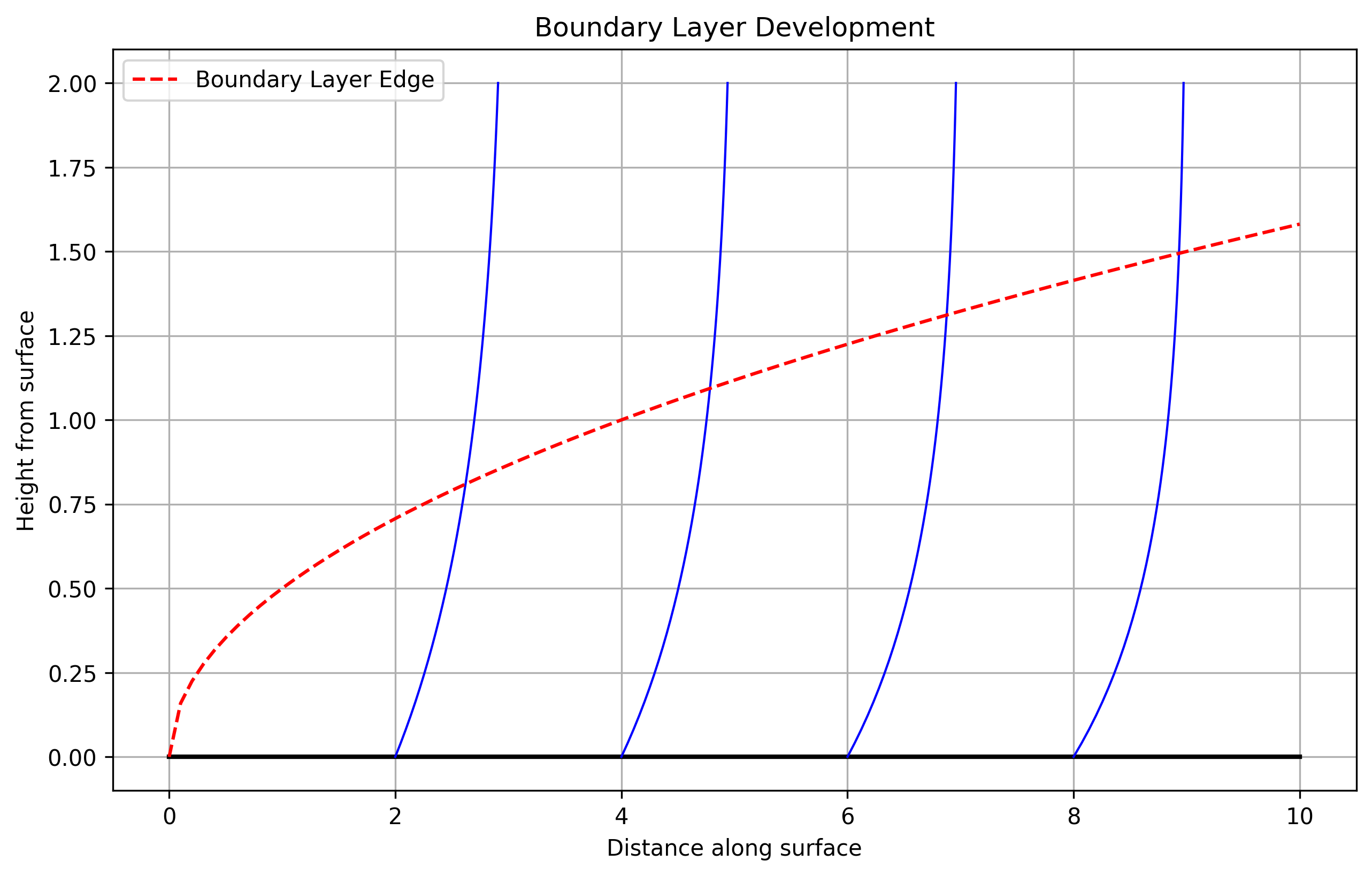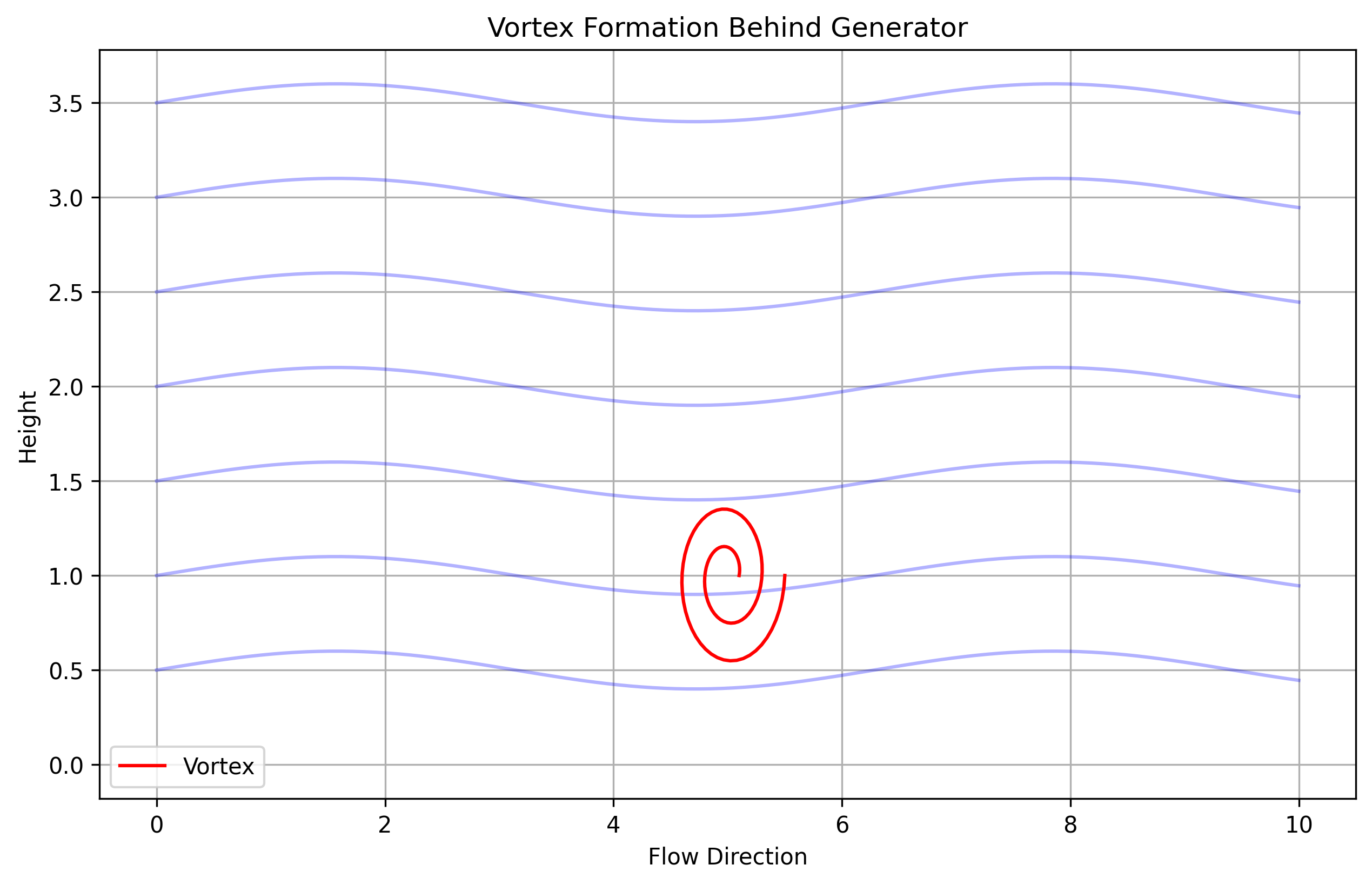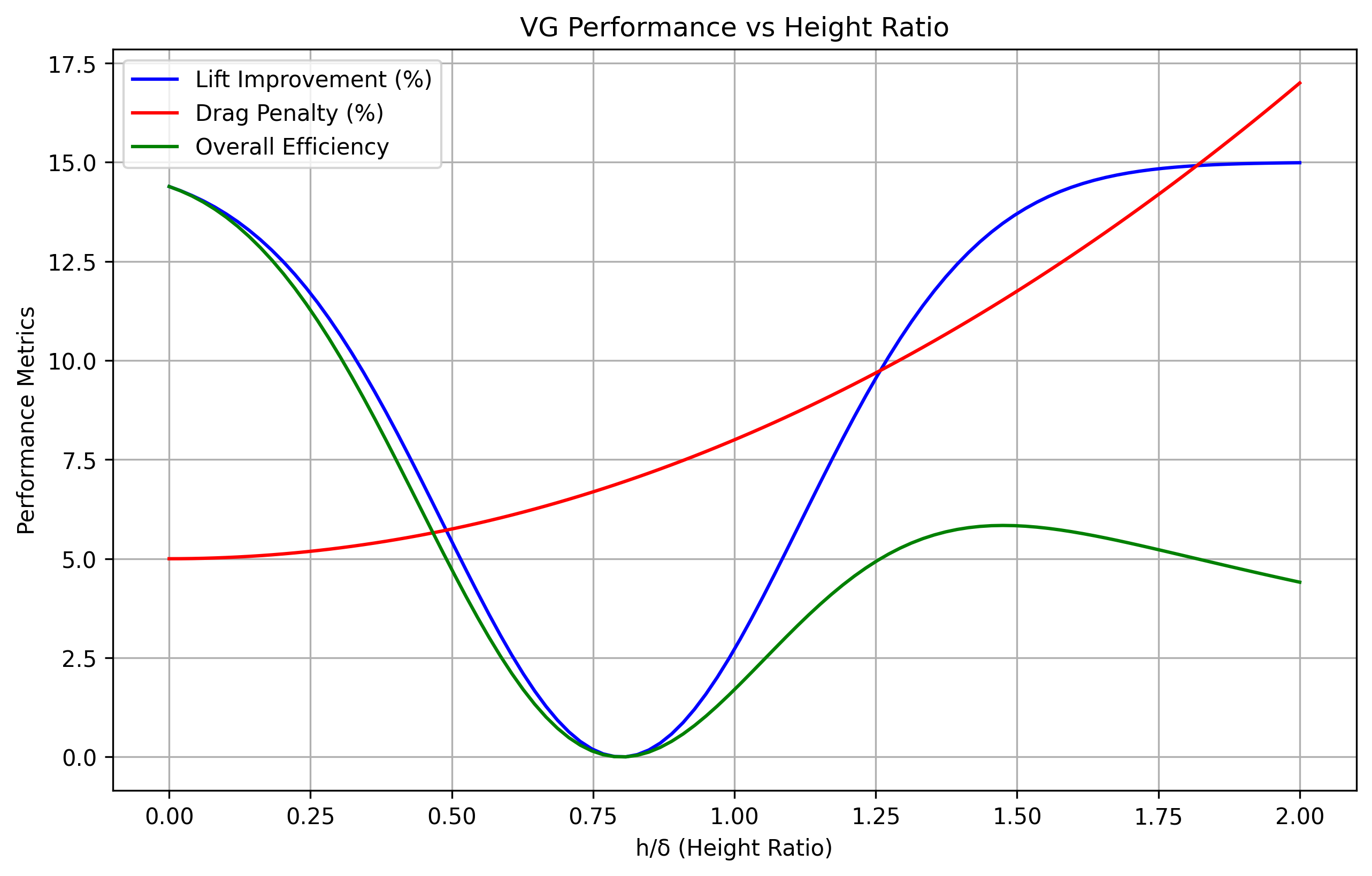Basic Principles of Vortex Generators
Introduction to Vortex Generators
Vortex generators (VGs) are aerodynamic devices that have become increasingly important in various engineering applications. These devices are designed to modify the behavior of fluid flow by generating controlled vortices, which can significantly impact the performance of aerodynamic systems.
Boundary Layer Theory
The boundary layer concept, first introduced by Ludwig Prandtl in 1904, is fundamental to understanding vortex generator operation. It describes the region where:

Figure 1: Boundary layer development and velocity profile over a flat plate
where δ is boundary layer thickness, x is distance from leading edge, ν is kinematic viscosity, and U∞ is free stream velocity
| Flow Regime | Reynolds Number (Re) | Characteristics |
|---|---|---|
| Laminar | Re < 5 × 10⁵ | Smooth, layered flow |
| Transitional | 5 × 10⁵ < Re < 10⁶ | Mixed flow characteristics |
| Turbulent | Re > 10⁶ | Chaotic, mixing flow |
Vortex Generation Mechanisms

Figure 2: Vortex formation process behind a vortex generator
Key Parameters Affecting Vortex Formation
Geometric Parameters
- Height (h): 0.8δ - 1.2δ
- Length (l): 1.5h - 2.5h
- Angle of incidence (β): 15° - 25°
- Spacing (s): 3h - 7h
Flow Parameters
- Reynolds number (Re)
- Mach number (M)
- Pressure gradient (dp/dx)
- Boundary layer thickness (δ)
Performance Metrics and Analysis

Figure 3: Relationship between vortex generator height and performance improvement
Relationship between lift-to-drag ratio improvement and key parameters
| Performance Metric | Typical Improvement Range | Optimization Parameter |
|---|---|---|
| Maximum Lift Coefficient | 10-15% | Height ratio (h/δ) |
| Stall Angle | 2-4 degrees | Angle of incidence (β) |
| Drag Reduction | 5-8% | Spacing ratio (s/h) |
References
- Lin, J.C., "Review of research on low-profile vortex generators to control boundary-layer separation," Progress in Aerospace Sciences, Vol. 38, No. 4-5, 2002, pp. 389-420.
- Godard, G., and Stanislas, M., "Control of a decelerating boundary layer," Aerospace Science and Technology, Vol. 10, No. 3, 2006, pp. 181-191.
- Ashill, P.R., Fulker, J.L., and Hackett, K.C., "Research at DERA on sub boundary layer vortex generators (SBVGs)," AIAA Paper 2001-0887, 2001.
- Pauley, W.R., and Eaton, J.K., "Experimental study of the development of longitudinal vortex pairs embedded in a turbulent boundary layer," AIAA Journal, Vol. 26, No. 7, 1988, pp. 816-823.